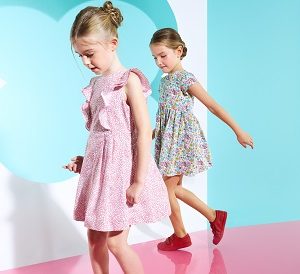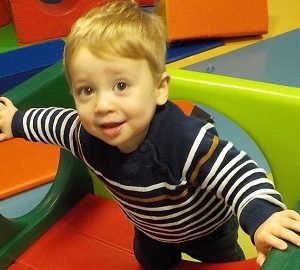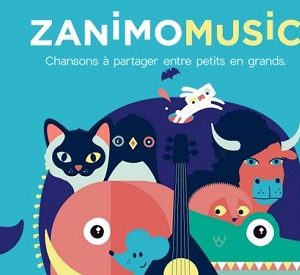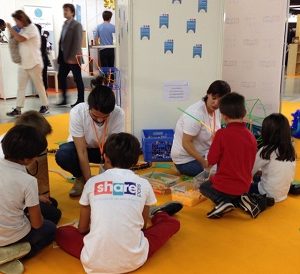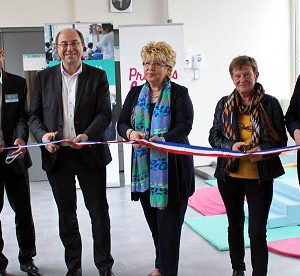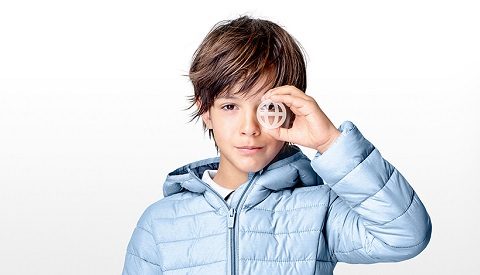

For 20 years Okaïdi has worked to make a better world for growing children. The brand is committed to a more progressive approach to product development and supplier support for the common good.
Its supply chain is complex so Okaïdi is working to make it more sustainable with several priority areas.
Eco-designing its collections
This means incorporating environmental criteria from the design phase right up to the point when clothes are recycled. Currently the two most popular materials used to make children’s clothes are cotton (conventional cotton production is very polluting) and polyester (which comes from petrol, a nonrenewable source that is also very polluting). That is why Okaïdi opts for more responsible production methods for these two fabrics:
- Organic cotton (grown without toxic chemicals or GMOs).
- BCI-sourced cotton. The Better Cotton Initiative is the largest cotton sustainability programme in the world. It uses less pesticides, fertilizers and water than conventional cotton production. The initiative also aims to protect the men and women who grow the cotton.
At the end of 2017 Okaïdi-Obaïbi committed to sourcing 50% of their cotton through the BCI. Their goal for 2020 is for 100% of their cotton to be responsibly produced, e.g. BCI-sourced cotton, organic cotton, fair trade cotton and recycled cotton.
- Recycled polyester made from plastic bottles and recycled plastic to reduce the use of petrol and the impact of its extraction on the environment and to reuse waste products.
Making its supply chain socially responsible
All of Okaïdi’s end product suppliers must sign a code of conduct. They are then audited by independent third parties. The use of child or forced labour (as in Uzbekistan) and other instances of noncompliance with essential criteria leads to their immediate delisting as an approved supplier.
All of these measures are part of a programme of continuous improvement with a particular focus on the traceability of supplies. Recently Okaïdi tasked the NGO TFT with eventually establishing complete supply chain traceability with its 60 strategic suppliers from the cotton field to the factory.
Okaïdi is also taking concrete action through its corporate foundation, in partnership with international NGOs, to help protect and educate vulnerable children from local communities in its countries of production.
Okaïdi embarked upon this road to progress 20 years ago with humility and sincerity and is more determined than ever to mobilize its stakeholders to take environmental and social action through We Act For Kids.

